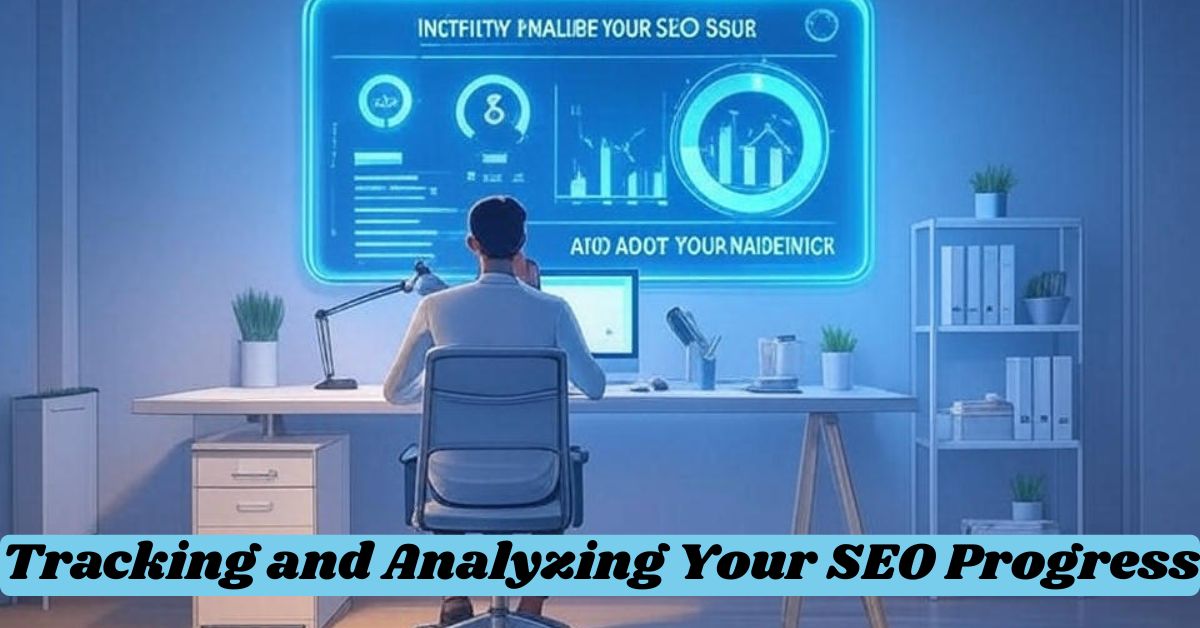In today’s competitive digital landscape, achieving first-page Google rankings is essential. Every business wants visibility in search results. David Aziz’s strategies have proven effective for countless websites.
This comprehensive guide shares his expert approach. You’ll discover practical techniques to improve your search engine ranking. These methods align with Google’s latest algorithm updates. Implementing these strategies consistently yields measurable results. Your journey to the first page starts here.
Understanding the Importance of SEO for Ranking on Google
Search Engine Optimization drives organic traffic to your website. Google processes over 8.5 billion searches daily. The first page captures 95% of all search traffic. Most users never scroll to page two. SEO helps Google understand your content’s value.
Effective optimization improves your web visibility. Google rewards websites that provide excellent user experiences. SEO is not optional in today’s digital marketing landscape. It’s the foundation of online success.
Your competitors are actively optimizing their websites. SEO provides long-term sustainable results. Unlike paid advertising, SEO benefits continue growing over time. Google’s algorithm becomes smarter with each update.
Understanding SEO fundamentals gives you competitive advantage. David Aziz emphasizes building SEO into your core business strategy. This approach yields consistent results across industries.
Why SEO Matters for Getting to the First Page?
First-page Google results receive 92% of all search clicks. Position one captures 33% of all search traffic. Search performance directly impacts business revenue. Users trust Google’s recommendations implicitly.

First-page rankings build instant credibility. They establish your brand as an industry authority. First-page positioning drastically increases conversion rates.
Your web presence expands exponentially with top rankings. Local businesses see immediate foot traffic increases. E-commerce sites experience significant sales growth. Service providers gain qualified leads without additional marketing spend.
SEO offers the highest ROI of any digital marketing strategy. David Aziz’s clients typically see 400% returns on their SEO investments. Top rankings provide sustained visibility in your market.
The Role of Keywords in SEO Strategy
Keywords connect search intent with your content. They’re the bridge between user needs and your solutions. Effective keyword research reveals market opportunities. It uncovers what your potential customers are actually searching for.
Long-tail keywords often convert at higher rates. They target users with specific needs. Query understanding shapes effective content strategy.
Keyword placement matters significantly for content relevance. Strategic keyword usage signals topical focus to Google. Avoid keyword stuffing as it triggers penalties. Natural language integration is essential.
Keyword research tools provide valuable competitive insights. They reveal gaps in your market’s content landscape. David Aziz recommends focusing on keywords with clear buyer intent. These terms drive revenue more effectively than informational queries.
David Aziz’s Proven Strategy for SEO Success
David Aziz’s approach focuses on sustainable, ethical techniques. His methodology emphasizes user experience above all else. He believes in building for users first, search engines second.
His strategies adapt to Google’s evolving requirements. They emphasize building genuine topical authority. This comprehensive approach addresses all ranking factors. It creates synergy between on-page and off-page elements.
His techniques have worked across diverse business categories. They scale effectively for both small businesses and enterprises. Each component strengthens the others for maximum impact.
Implementation follows a strategic sequence for optimal results. This holistic strategy addresses both current rankings and future sustainability. It builds resilience against algorithm changes.
READ THIS BLOG: Building Trust with Clients: Essential Messages for Strong Relationships
1. High-Quality Content Creation
Content quality assessment drives Google’s ranking decisions. Original, valuable content earns and maintains top positions. David Aziz recommends comprehensive coverage of your topics. Each piece should solve specific user problems.
Content must satisfy the user’s search intent completely. Thin content never sustains high rankings. Deep, authoritative content always outperforms superficial articles.
- Create content that answers specific questions your audience asks.
- Use data, research, and original insights to differentiate your content.
- Structure content for easy scanning with clear headings and bullet points.
- Include multimedia elements like images, videos, and infographics.
- Update high-performing content regularly to maintain freshness.
- Focus on creating 10x content that’s substantially better than competitors.
- Develop comprehensive resource guides that showcase your expertise.
Word count matters less than comprehensive coverage. Quality signals include dwell time and bounce rate. Longer engagement indicates greater content value. Your content should establish clear topical authority.
Google rewards genuine expertise in your subject matter. David Aziz emphasizes creating cornerstone content pieces. These foundational articles establish your site’s authority.
2. On-Page SEO Optimization
On-page elements directly signal relevance to Google. Proper optimization makes your content instantly understandable. Each page should target a primary keyword cluster. Title tags remain the most powerful on-page element.
Meta descriptions influence click-through rates significantly. Header tags create a clear content hierarchy. Internal linking distributes page authority effectively.
- Optimize title tags with primary keywords near the beginning.
- Create compelling meta descriptions that drive clicks.
- Use H1, H2, and H3 tags to organize content logically.
- Include target keywords in the first 100 words.
- Optimize image alt tags for both accessibility and SEO.
- Create SEO-friendly URLs with target keywords.
- Implement schema markup for enhanced search results.
David Aziz emphasizes proper semantic search optimization. This includes using related terms and concepts. LSI keywords strengthen topical relevance signals. Natural language patterns improve content flow.
Strategic keyword placement enhances content semantics. Every on-page element should work cohesively. This creates a strong unified relevance signal to Google.
3. Building High-Quality Backlinks
Backlinks remain Google’s strongest ranking signal. They function as votes of confidence from other websites. Quality always outweighs quantity in link building. Relevant industry links carry more weight than general links.
David Aziz focuses on earning links through valuable content. His approach emphasizes relationship building over link acquisition. This creates sustainable link profiles that withstand algorithm updates.
- Create linkable assets like original research, tools, or infographics.
- Develop relationships with industry publishers and bloggers.
- Guest post on relevant, authoritative websites in your niche.
- Participate meaningfully in industry conversations online.
- Leverage data visualization to attract natural backlinks.
- Monitor competitors’ backlinks to identify opportunities.
- Focus on earning links from websites with high domain authority.
Toxic links can trigger penalties or filters. Regular backlink audits maintain profile health. Disavow harmful links promptly when identified. Diversified anchor text appears natural to Google.
Over-optimized anchors trigger algorithmic filters. Link velocity should grow organically over time. Sudden link spikes appear manipulative to search engines.
4. Mobile-Friendly and Fast-Loading Website
Mobile-first indexing prioritizes mobile performance. Google predominantly uses mobile versions for ranking decisions. Responsive design ensures consistent experiences across devices. Page speed directly impacts both rankings and conversions.
Each second of delay reduces conversions by 7%. David Aziz emphasizes technical performance optimization. User experience signals now directly influence rankings.
- Implement responsive design that adapts to all screen sizes.
- Optimize images with proper compression and formats.
- Leverage browser caching to improve load times.
- Minimize HTTP requests to speed up page rendering.
- Eliminate render-blocking JavaScript and CSS.
- Implement AMP for lightning-fast mobile loading.
- Use Google’s PageSpeed Insights to identify specific improvements.
Core Web Vitals represent specific performance metrics. They measure loading, interactivity, and visual stability. Google now uses these as explicit ranking factors. David Aziz prioritizes these metrics in all optimization efforts.
Largest Contentful Paint should occur within 2.5 seconds. First Input Delay must remain under 100 milliseconds. Cumulative Layout Shift should stay below 0.1 for optimal performance.
5. Technical SEO
Technical SEO creates the foundation for all other efforts. It ensures Google can properly crawl and index your content. Structural issues can undermine even excellent content. Proper information retrieval systems optimize crawl efficiency. XML sitemaps help Google discover all important pages. Robots.txt files direct crawling resources effectively. Canonical tags prevent duplicate content issues.
- Implement proper URL structure with logical hierarchy.
- Create comprehensive XML sitemaps for all content types.
- Use canonical tags to manage duplicate content.
- Implement proper hreflang tags for international targeting.
- Ensure crawl budget optimization through strategic directives.
- Fix broken links and redirect chains that waste crawl budgets.
- Implement proper HTTP status codes across your website.
David Aziz emphasizes regular technical audits. They identify issues before they impact rankings. JavaScript rendering receives special attention. It ensures dynamic content remains fully indexable.
Structured data enhances entity recognition. It helps Google understand content relationships. Technical fundamentals support all other SEO efforts. Without them, other strategies cannot reach their full potential.
Tracking and Analyzing Your SEO Progress
Data-driven decisions improve SEO outcomes significantly. Regular monitoring identifies both opportunities and issues. Tracking provides objective performance measurement. It reveals which strategies deliver the strongest results.

David Aziz recommends comprehensive tracking implementations. This creates complete visibility into your SEO performance. Proper analysis reveals specific improvement opportunities.
Using Google Analytics and Search Console
Google Analytics tracks user behavior after arrival. Search Console shows how Google views your website. Together they provide complete performance visibility. Analytics reveals which pages drive conversions.
Search Console highlights technical issues affecting rankings. Integration between these tools provides deeper insights. Regular monitoring identifies trends before they become problems.
- Track organic traffic trends by landing page.
- Monitor conversion rates from organic search visitors.
- Analyze user behavior patterns through engagement metrics.
- Review search query performance in Search Console.
- Identify technical issues through coverage reports.
- Monitor mobile usability scores and issues.
- Track Core Web Vitals performance metrics.
David Aziz recommends weekly performance reviews. Monthly deep-dive analysis reveals broader patterns.
Quarterly strategy adjustments maintain momentum. Year-over-year comparisons reveal true progress. These consistent review cycles optimize resource allocation. They ensure focus remains on high-impact activities.
ALSO READ THIS BLOG: 25+ Father Death Anniversary Messages to Honor His Memory
Adjusting Your Strategy Based on Data
SEO requires continuous adaptation and improvement. Google’s algorithm updates constantly. Competitor strategies evolve regularly. Market conditions shift unexpectedly. Data-driven adjustments maintain ranking momentum.
They prevent outdated tactics from undermining results. Regular strategy refinement maximizes ROI. It ensures resources target the most effective opportunities.
- Prioritize improvements based on potential impact.
- Test changes incrementally to isolate effective tactics.
- Adjust content strategy based on performance patterns.
- Reallocate resources from underperforming initiatives.
- Double down on tactics showing strong results.
- Abandon strategies with diminishing returns.
- Develop quarterly roadmaps based on performance data.
David Aziz emphasizes the importance of patience. SEO results develop over months, not days. Premature strategy changes undermine momentum. Data patterns require sufficient time to emerge. He recommends minimum 90-day evaluation periods.
This time frame allows for proper impact assessment. It prevents reactive decisions based on temporary fluctuations.
Frequently Asked Questions
How long does it take to rank on the first page of Google?
Most websites need 4-6 months of consistent SEO work to reach the first page, depending on competition and niche difficulty.
How do I find the best keywords for my website?
Use tools like Google Keyword Planner or SEMrush to identify terms with good search volume and moderate competition that match your business offerings.
Do backlinks still matter for SEO in 2023?
Yes, quality backlinks remain one of Google’s top ranking factors, but focus on relevance and authority rather than quantity.
Can I do SEO on my own, or do I need an expert?
Basic SEO can be done independently, but competitive niches often require expert help for technical optimization and advanced strategy.
How important is mobile optimization for SEO?
Extremely important Google uses mobile-first indexing, making mobile performance essential for rankings across all devices.
Conclusion
Getting to the first page of Google requires a strategic approach combining quality content, technical excellence, and authoritative backlinks. David Aziz’s proven methodology delivers sustainable results by focusing on user experience and search intent alignment. Consistent implementation of these techniques builds genuine ranking power over time.
Start with thorough keyword research, develop comprehensive content, and optimize technical elements while building quality backlinks. With patience and persistent effort, first-page rankings are achievable for any dedicated website owner.

Jerry is a seasoned SEO expert with a passion for content writing, keyword research, and web development. He combines technical expertise with creative strategies to deliver exceptional digital solutions.










